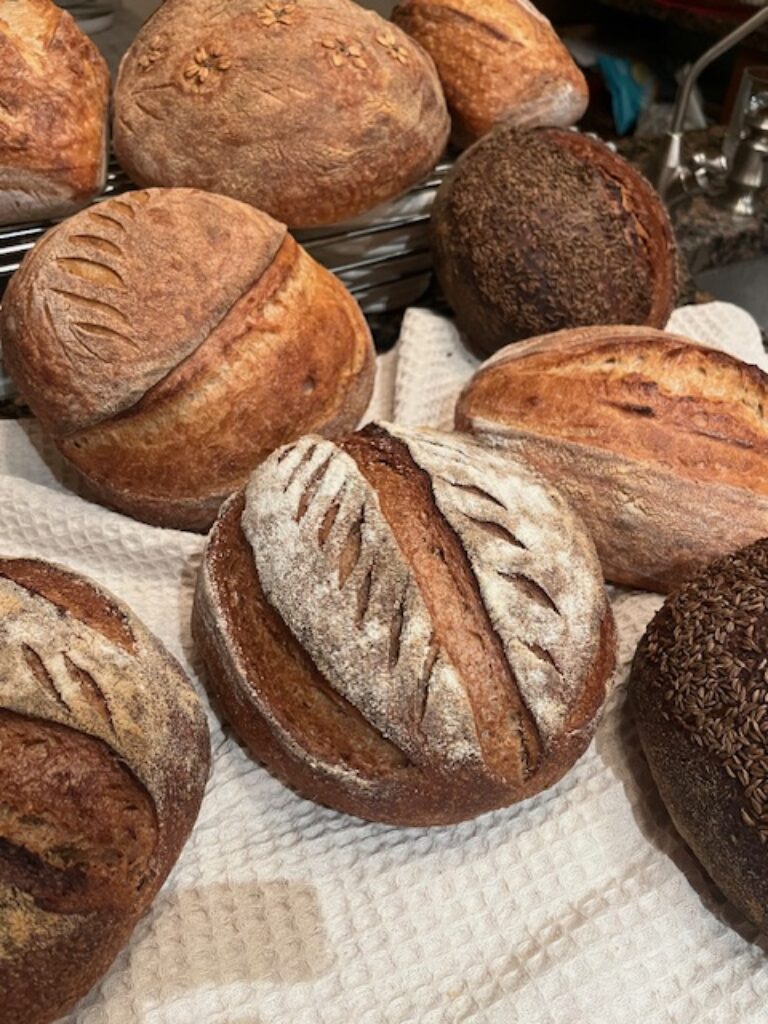
There’s something truly special about homemade bread—especially when it’s made with care, time, and the best ingredients. My sourdough loaves are crafted with passion using only unbleached flour, whole wheat, and sometimes a hearty touch of rye. But what really sets them apart from store-bought industrial bread is the long, natural fermentation process and the integrity of what goes inside.
I ferment my sourdough for over 24 hours. During this slow process, natural wild yeasts and beneficial lactic acid bacteria work together to break down gluten into smaller, easier-to-digest proteins. At the same time, phytic acid—an anti-nutrient that can block the absorption of minerals like iron, calcium, and magnesium—is broken down. This means the nutrients in the bread become more bioavailable for your body to absorb.
Fermentation also produces organic acids and prebiotics that can support gut health, balance blood sugar, and give sourdough its signature tangy flavor. For many people with mild gluten intolerance or sensitivities, this traditional method of baking makes all the difference.
Sourdough baking brings us back to our ancient roots—before commercial yeast, preservatives, and mass production. For thousands of years, people made bread at home with nothing but flour, water, and salt, using natural fermentation to create loaves full of life and nourishment. Sourdough is a beautiful reminder of those traditional ways—slow, simple, and deeply connected to nature. Every loaf I bake carries that same spirit, honoring the timeless art of breadmaking that nourished generations before us.
When you bite into one of my loaves, you’re tasting more than just good bread—you’re experiencing real, slow-fermented nourishment. No shortcuts. No preservatives. Just wholesome, honest bread the way it was meant to be.
